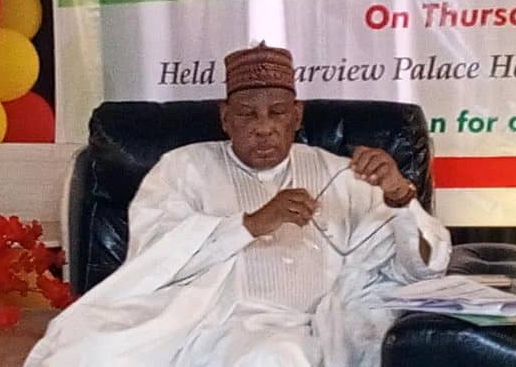By Abubakar Yusuf
The Universal Basic Education Commission UBEC is not resting on its oars, particularly efforts at creating engagement outlets for pupils at the elementary level , so as to provide a leeway early enough for their live activities.
The recently introduced “School To Work Scheme” (STWS) targeted at the Junior Secondary School JSS level was not only meant to give meaningful living to the young ones at elementary level, who are growing up, but provide alternatives to those with academic cum technical potentials , or either of the profession in accordance to their ambition.
Aside Vocational Education that is the other of the day, deploying School To Work Scheme (STWS), with the introduction of the scheme, meant to give a life long skills and enterpreneurial capabilities at the early stage in life , so as to prepare them ahead of life challenges.
The new innovation founded by the commission is capable of giving unfettered access to Junior school pupils at the early stage of their lives, a productive and self employment status even at that level .
With the efforts of UBEC at inculcating the talent along with the potentials early in life , which led to the convening of stakeholders in Education sector that included the 36 states Commissioners for Education including the Education mandate secretary for the FCT, and the Executive Secretaries, State Universal Basic Education Commission (SUBEBs and UBEB), to chart a genuine and a lasting way forward for JSS students.
The choice between academic and vocation at the inertia, will guarantee a productive, self employed, self reliant and self self assertion, as well as engagement for pupils.
Aside equipping the JSS students and graduates at that level , it will also harness a divergent ideas of graduates at that level to consolidate either in academic, trade or any other relevant vocation to be able to distinguish between master of all, with no knowledge of any skills.
The School To Work Scheme (STWS) , scheduled to hold six months training within the three years duration of JSS program, with two months in each of the year, will not only provide an insight to the pupils to learn between academic, trade and vocation, but an impetus that will consolidate national development strategy across all strata.
The new move will also provide a transition arrangements between the JSS class and the SSS class, either for the pupils to continue with the new new vocation or academic sphere as the foundation of the new order.
With vocational and technical Education as the major components and foundation of emerging world inview of the the technological breakthrough, there is no doubt that coming up with the two areas of both academic and skills development will be of advantage in all areas.
The new format started early at the JSS level of the Education sub-sector, will not only grow the economy of the country, but by and large, ensured a sustained future for the children at the elementary level.
Therefore, all hands must be on deck for the stakeholders at the sub -national level to collaborate with the Universal Basic Education Commission UBEC, under the leadership of Dr Hamid Bobboyi to ensure the success of the new program.
When inculcated , it will create a healthy environment not only between developed and developing countries, but among the third world nations to ensure self sustenance and self reliance.
ABUBAKAR YUSUF Writes from Abuja on yus.abubakar3@gmail.com.











